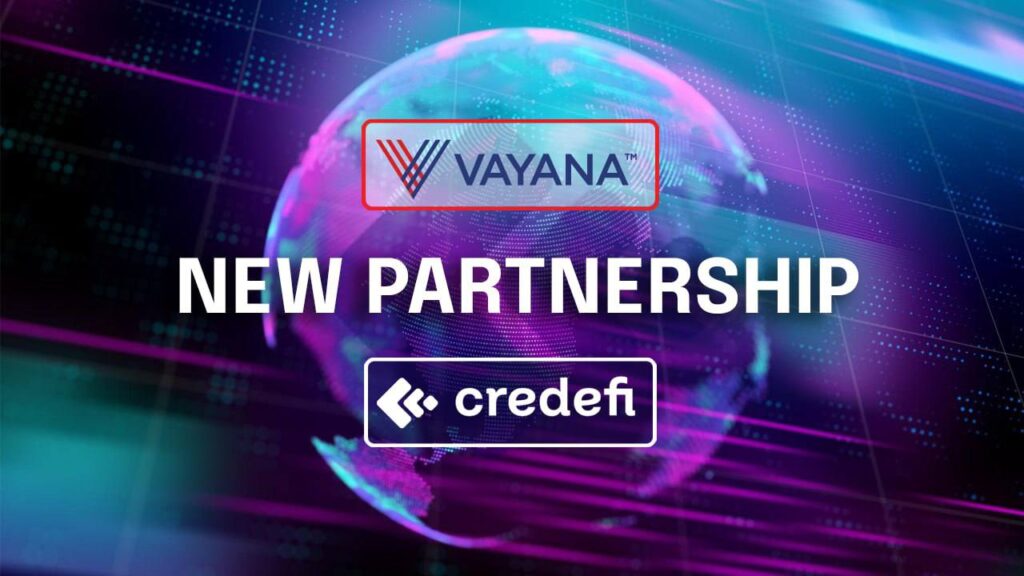Credefi, a leading real-world asset (RWA) credit platform, has announced a strategic partnership with Vayana—India’s largest trade finance network—to bridge crypto capital with real-world private credit in one of the world’s most dynamic economies. This collaboration marks a significant leap in the industrialization and compliance of debt tokenization, offering DeFi investors direct exposure to India’s private credit markets through regulated channels.
Unlocking Regulated Access to Indian Private Debt via DeFi
Under the new agreement, Vayana will provide Credefi with a proven tokenization and private credit infrastructure. Vayana’s platform is designed to issue, manage, and service digital claims—tokenizing instruments like loans and debentures with end-to-end compliance, KYC/AML, and real-time registry management, all tailored to local Indian regulations.
Credefi’s move beyond its traditional EU markets signals its ambition to “open new capital corridors” and connect emerging market RWAs with global crypto investors—ensuring the entire process stays within strict compliance standards. As summarized by Vayana’s leadership, the alliance aims to “bring real-world assets to DeFi investors via a fully compliant framework.”
Vayana’s Market Leadership and Institutional Pedigree
Vayana stands out as the backbone of India’s supply chain financing, operating a powerful debt platform (VDP) that automates the full lifecycle of private instruments—including settlement with stablecoins, deposit tokens, and even CBDCs. It has already attracted major institutional investors (such as SMBC Asia and IFC) and works closely with regulated entities, lending robust credibility to this on-chain debt initiative.
The platform standardizes how private bonds are issued, serviced, and reported—making compliance repeatable and scalable across different asset types and reducing risks associated with fragmented documentation or vague servicing obligations.
What This Means for Credefi and DeFi Lenders
For Credefi—historically focused on European credit—access to Vayana opens a new gateway to India’s vast private credit market. DeFi investors can now participate in tokenized claims that originate, are documented, and are serviced natively on a digital platform, all with traceable compliance and ongoing regulatory checks.
This upgrade enables:
- Diversification into high-yield private credit markets in India, with clear underwriting and KYC/AML controls.
- Exposure to digitized, operationally robust assets, reducing the reliance on ad-hoc TradFi–DeFi bridges.
- Confidence in standardized issuance and servicing, enhancing the trustworthiness of yield streams.
The Industrial Promise: Standardization, Compliance, and Scale
The real breakthrough is not just in the branding but in industrializing and standardizing how private debt is tokenized and managed. Vayana’s SaaS infrastructure ensures that, whether the underlying asset is a loan or a debenture, all steps—issuance, checks, servicing, and reporting—are automated and compliant.
Tokenization here is a true vector for transparency, automation, and regulatory bridging, positioning the alliance for a credible “global” rollout, beginning with India as a priority market.
Key Metrics and Future Considerations
Success will be measured by:
- The quality and performance of debt assets (default rates, recovery processes).
- The liquidity and transparency of secondary markets for debt tokens.
- The effectiveness of cross-border compliance for global investors.
Early indicators—including issuance volumes, investor participation, and operational smoothness—will reveal whether this alliance delivers on its promise of compliant, DeFi-accessible emerging market RWAs.
A Sign of Maturing Debt Tokenization
Credefi and Vayana’s partnership reflects a major evolution from earlier tokenization pilots toward industrial-grade, compliant solutions—especially in markets like India, where financial infrastructure is both deep and fragmented. The collaboration leverages regulated platforms and standardized processes to achieve something previously unattainable: the seamless, trustworthy, and scalable integration of crypto capital into real-world credit markets.
For the broader industry, this signals the start of debt tokenization’s “industrial phase,” where compliance, automation, and trust become central to connecting global DeFi with institutional-grade assets in emerging economies.

